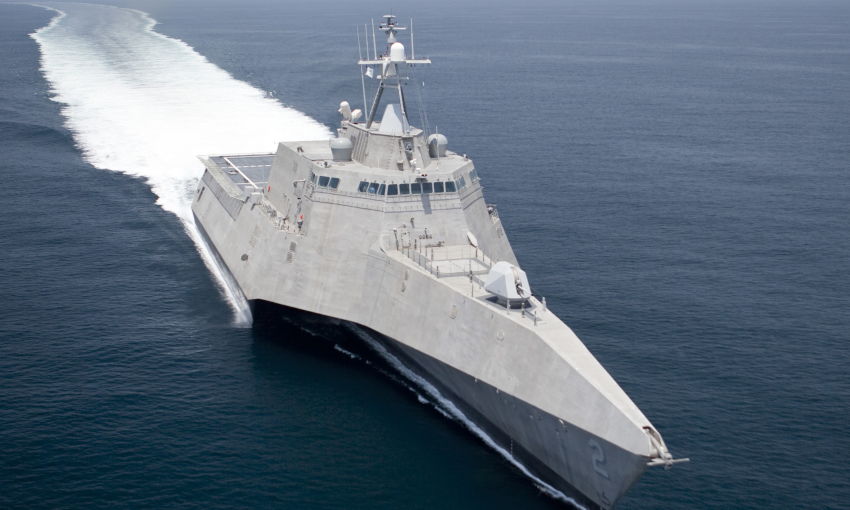The US Department of Defense has awarded Austal USA a contract to build two additional Littoral Combat Ships (LCS) for the US Navy fleet, bringing the total 2018 order to four ships.
To continue reading the rest of this article, please log in.
Create free account to get unlimited news articles and more!
Austal has so far delivered eight Independence Class ships, with a further six under construction and three awaiting start of construction. The two additional ships represent the company's 18th and 19th ships in the class.
Each contract is under the congressional cost cap of US$584 million per ship.
"This latest order from the US Navy is a tremendous endorsement of Austal’s LCS platform and further evidence of the important role Austal plays in the United States Navy," Austal chief executive David Singleton said.
"We have been very successful, winning two Littoral Combat Ships per annum in competitions in each of the last three US government financial years. This has been achieved as a result of a highly focused and successful program of production efficiency at our shipyard in Alabama and is a credit to that team.”
The LCS is a high-speed, agile, multi-mission combatant, with the Independence variant open ocean capable but designed to "defeat growing littoral threats and provide access and dominance in the coastal water battlespace."
The LCS is designed for critical missions including mine warfare, anti-submarine warfare and surface warfare.
"The award of LCS 36 and 38 will mean that Austal has an order book for a further nine ships to deliver, a program that now extends out to 2025. This order book creates continuity and certainty of workload to the workforce in Alabama who have achieved so much," Singleton said.
"The growth in the ship order book will also continue to drive ship support and sustainment revenues over the coming years. This is an increasingly important part of the revenue base of the company and is likely to continue to grow significantly well into the future as ships are delivered and deployed around the world."

 Login
Login







